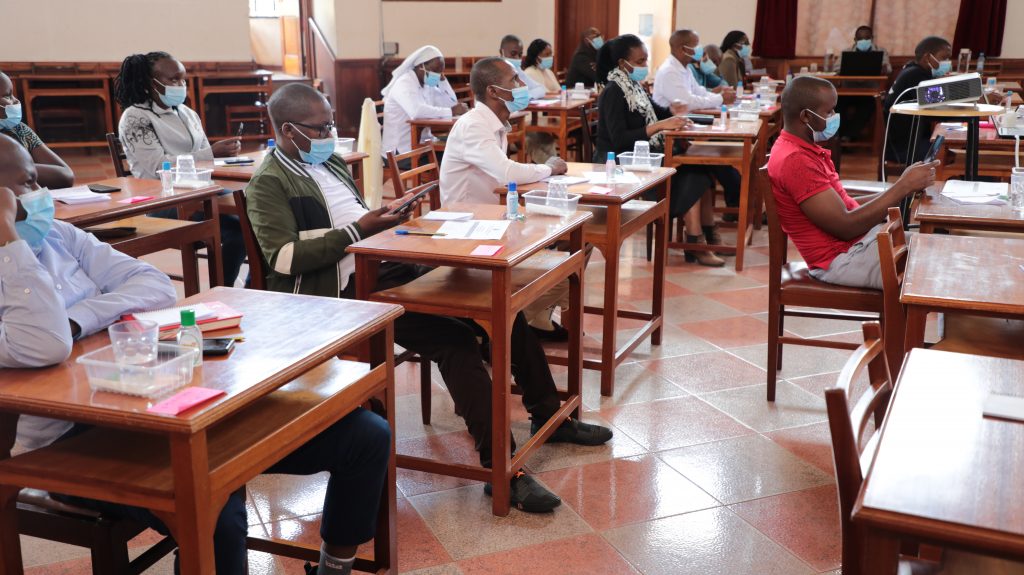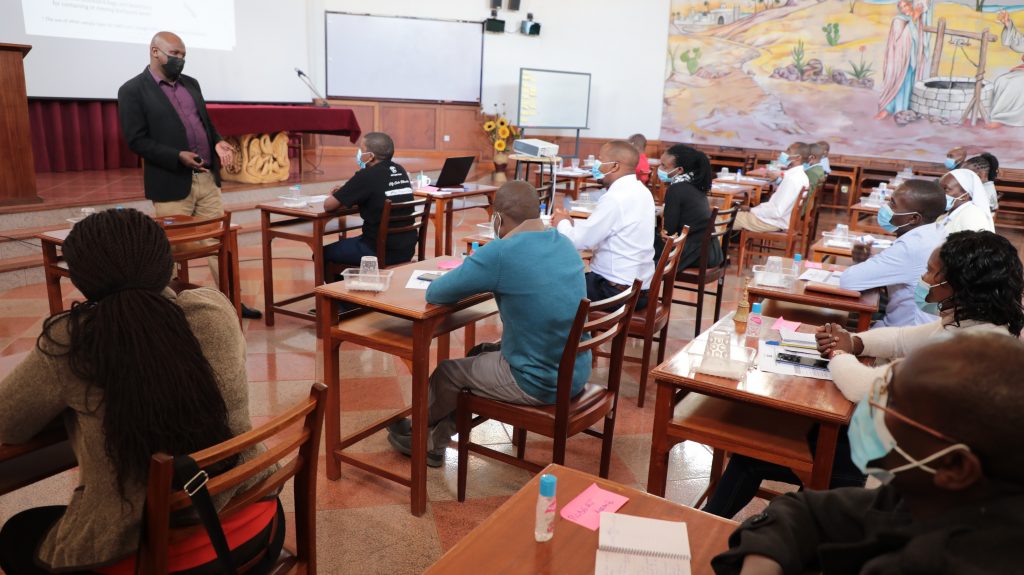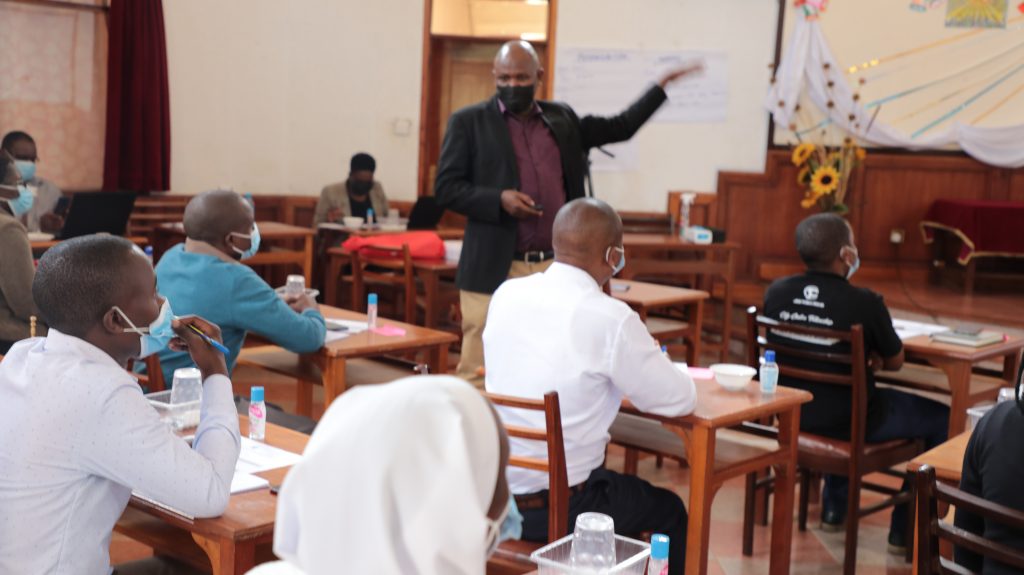On September 17th 2021, the Association of Sisterhoods of Kenya (AOSK) held an Antigen Rapid Diagnostic Testing (RDT) for COVID-19 training for 18 lab technicians working in sisters-run health facilities in Kenya.
The 18 were among 1,500 frontline health workers (including sisters) who are set to benefit from various trainings meant to build their capacity and knowledge on COVID-19 through the AOSK COVID-19 Awareness and Prevention Campaign.
The training, held at DIMESE Sisters offices in Karen, Nairobi was one of the project interventions to share COVID-19 related knowledge information with health workers. It followed a circular by the Ministry of Health on the use of Antigen RDT for COVID-19 after the World Health Organization (WHO) listed two SARS-COV-2 antigen tests that can be used for testing with appreciable accuracy.
During the training, Dr Joseph Karanja from the Ministry of Health took the trainees through the COVID-19 Antigen RDT Guideline that has been developed by the Ministry of Health to pave the way for the adoption of the use of COVID-19 antigen kits in Kenya. The guideline outlines the circumstances and the populations on which these tests can be used and also summarises interpretation of expected results.
‘‘SARS-CoV-2 Antigen RDT testing can be considered if there is widespread community transmission of COVID-19, the health system is overburdened, and it is not possible to test all suspected cases by molecular testing methods,’’ he said, adding that “A negative Antigen Test can not rule out an active COVID-19 infection.’’
Specifically, Antigen RDT is recommended in high prevalence settings such as ICU, isolation facilities, Accident and Emergency, super spreader events such as schools and colleges, prisons, gatherings such as religious and political events, and at prisons and remand. In low prevalence settings, it is used where there’s no access to RT PCR testing such as at the points of entry for arriving passengers if they have symptoms of COVID-19 and whose COVID-19 certificates have expired. It can also be used on special populations such as street families with symptoms or contact with a confirmed case.
Prior to the entry of the Antigen RDT kits into the Kenyan market, the Ministry of Health entirely relied on PCR-based testing for diagnosis of suspected cases. PCR however remains the reference diagnostic test for COVID-19 and for now, and it is the only type of test acceptable for people who require a COVID-19 certificate before travel outside the country.
Sister Regina Nthenya, Programme Manager, AOSK Health Networks Project noted that the training enabled the technicians, majority being from rural hospitals, to understand how to do the Antigen test, which is preferred in places where people can not access PCR test. ‘‘This training has also instilled in them confidence to test everyone, even those with COVID-19,’’ she said.
The lab technicians expressed their gratitude for the training wth majority said they were more confident in collecting samples after taking part in demonstrations and a practical session. The AOSK COVID-19 campaign complements the work of the Government in COVID-19 response by creating awareness about the pandemic and preventive measures, including vaccination.




